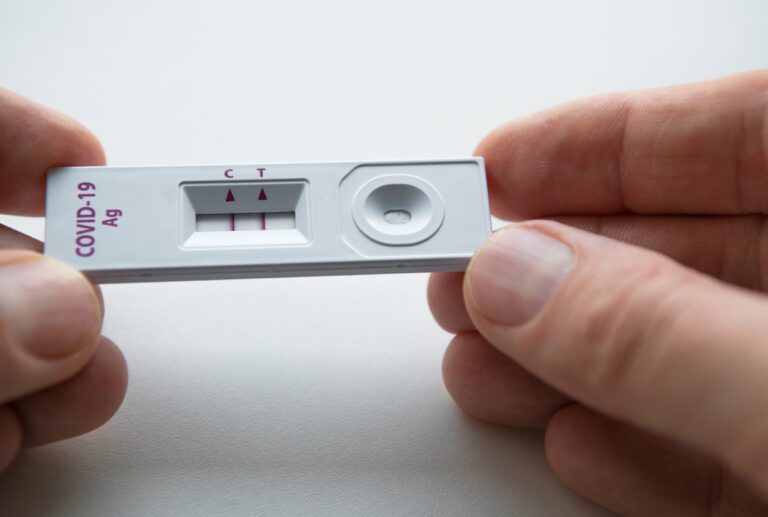With a remarkable focus on the kynurenine pathway, a conduit intertwined with inflammation, this discovery sheds light on a potential avenue for therapeutic intervention.
The Path to Clarity: A Key Discovery
The hallmark of long COVID, particularly in individuals experiencing the elusive phenomenon of “brain fog,” could find its origins within an unexpected metabolic pathway. This groundbreaking revelation, spearheaded by scientists hailing from the School of Psychology and Faculty of Medicine & Health, underscores the intricate relationship between inflammation and cognitive impairments witnessed in long COVID patients.
Connecting the Dots: A Study of Resilience and Cognitive Changes
Delving into the intricacies of the kynurenine pathway, the researchers examined a cohort of 128 individuals. Remarkably, those displaying a prolonged activation of this pathway were found to be more susceptible to mild cognitive deficits even a year after their initial COVID-19 diagnosis. Furthermore, this study highlights that these cognitive symptoms tend to persist over time, offering a poignant glimpse into the resilience and tenacity of the human brain in the face of adversity.
A Journey of Insights: Unraveling the Intricacies
The study’s participants were drawn from the St Vincent’s COVID-19 ADAPT study, a comprehensive longitudinal investigation spearheaded by the esteemed Professor Gail Matthews. This initiative, while focused on patients with mild to moderate acute COVID-19, took a comprehensive approach, delving into the realm of cognitive, physical, and mental health.
Defying Assumptions: Unmasking the Biological Mechanism
Brain fog, often brushed off as a psychological ailment, emerges as a tangible biological phenomenon rooted in the dysregulation of the immune response. The study, conducted by Associate Professor Lucette Cysique and her team, ushers in a paradigm shift by highlighting the significant role played by the kynurenine pathway in precipitating cognitive changes in long COVID patients.
Beyond the Fog: Implications for Diagnosis and Treatment
As the curtains are drawn back on the kynurenine pathway’s role, a plethora of possibilities come into view. This discovery paves the way for potential diagnostic markers and therapeutic targets, amplifying hopes for alleviating the cognitive struggles endured by long COVID sufferers.
A Complex Puzzle: Long COVID and the Enigma of Brain Fog
In light of the World Health Organisation’s revelation that approximately 10–20% of individuals continue to experience enduring effects post COVID recovery, the study’s findings come as a significant revelation. The expansive range of symptoms associated with long COVID, spanning over 100 different manifestations, attests to the complexity of this multi-organ disease.
Unveiling the Essence of Brain Fog
The cognitive challenges of long COVID, colloquially termed “brain fog,” manifest as a cascade of mental fatigue, hindered focus, and short-term memory lapses. This disruptive cognitive tapestry impedes everyday functioning, impacting work efficiency and economic stability, particularly among the working-age population.
Bridging the Gap: Long-term Monitoring and Insights
Tracking the trajectory of patients over a span of two, four, and 12 months, this study illuminates the extended activation of the kynurenine pathway. The study’s pioneering approach positions it as a crucial cornerstone, suggesting potential biomarkers and therapies for those grappling with the persistent effects of long COVID.
A Glimpse into the Future: Charting a Course for Progress
With renewed government interest and funding directed towards long COVID research, the study’s revelations resonate as a beacon of hope for afflicted individuals. As long COVID clinics remain inundated and hospitals grapple with this enigmatic syndrome, this research paints a promising future characterised by enhanced understanding, targeted treatments, and ultimately, improved quality of life.
Towards New Horizons: A Collaborative Pursuit
As the quest for answers and solutions continues, collaborations spanning across borders emerge. The team’s liaison with a Dutch research group, exploring the extended activation of the kynurenine pathway in COVID-19 brain changes, ushers in an era of collaborative investigation that transcends geographic boundaries. Together, they navigate the uncharted waters of long COVID, seeking to alleviate its burdens and illuminate the path towards recovery.







